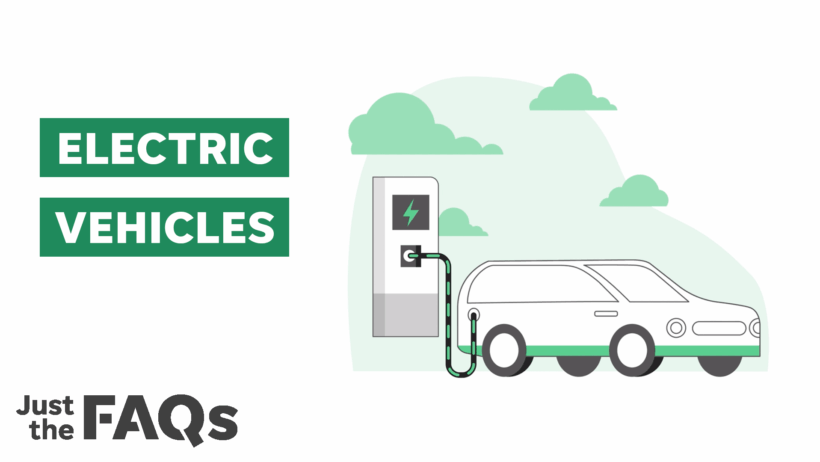In recent years, electric vehicles (EVs) have gained considerable attention as a potential solution to mitigate global warming and reduce greenhouse gas emissions. As climate change has become an increasingly pressing issue, many view electric cars as a panacea for the environmental challenges our planet faces. However, a critical examination reveals a more nuanced reality: while electric vehicles may contribute positively, their role in the fight against global warming is not as straightforward as often portrayed.
One of the prominent arguments in favor of electric cars is their ability to operate without emitting tailpipe pollutants. This significantly contrasts with traditional internal combustion engine vehicles that release carbon dioxide (CO2), nitrogen oxides (NOx), and particulate matter into the atmosphere. As urban centers grapple with air quality issues and the health implications associated with pollution, the transition to electric vehicles presents a compelling incentive. The reduction of local air pollutants enhances public health and urban livability, leading to reduced healthcare costs and a generally improved quality of life.
Moreover, when one considers the lifecycle emissions of a vehicle, the advantages of EVs become even more pronounced. Manufacturing the batteries for electric cars often necessitates significant energy input, particularly when non-renewable resources are employed in their production. However, studies have suggested that the overall carbon footprint of electric vehicles can be less than that of gasoline-powered counterparts, especially in regions where the electricity grid relies on renewable sources. Consequently, in the case of regions promoting sustainable energy generation, such as solar or wind, the emissions associated with charging an electric vehicle can be drastically minimized.
Nonetheless, it is critical to scrutinize the sources of electricity used to power electric cars. In jurisdictions where fossil fuels dominate the energy mix, such as coal or natural gas, the environmental benefits of transitioning to EVs are significantly diluted. While the vehicle itself produces no emissions, the electricity required to charge it can result in substantial CO2 emissions, undermining the intended purpose of a low-emission vehicle. Therefore, the effectiveness of electric vehicles in combating global warming is highly contingent on the decarbonization of the electricity sector.
In addition to energy consumption, the production and disposal of electric vehicle batteries pose other environmental concerns. The extraction of lithium, cobalt, and nickel—vital components of modern lithium-ion batteries—raises ethical and environmental issues. Mining operations can result in devastating ecological impacts, including habitat destruction and water contamination. Furthermore, the end-of-life management of batteries presents a daunting challenge as well, with improper disposal potentially leading to toxic material leakage and pollution exacerbating existing environmental problems. Strategies for responsible recycling and the development of sustainable battery technologies are paramount to alleviate these concerns.
Despite these complexities, electric vehicles have spurred innovation in climate science and technology. The rise of EVs has prompted significant investments in energy storage technologies, grid enhancements, and infrastructure necessary for a widespread transition. Public-private partnerships have emerged, focusing on expanding charging networks and integrating renewable energy into transportation systems. This momentum serves not only to facilitate electric vehicle adoption but also to inspire broader initiatives aimed at reducing emissions across various sectors.
Moreover, one must consider the psychological and cultural dimensions that accompany the rise of electric vehicles. The fascination with electric cars transcends mere utility; it represents a paradigm shift in consumer behavior and attitudes toward sustainability. The introduction of alluring models from major automotive brands, coupled with government incentives, has further democratized access to low-emission vehicles. The allure of electric cars is akin to a status symbol reflecting a consumer’s commitment to environmental stewardship, fostering a culture that celebrates sustainable choices.
However, this celebratory discourse must not obscure the broader systemic changes required to address global warming comprehensively. While electric vehicles can play an instrumental role, they are not a silver bullet. Comprehensive policy frameworks emphasizing public transportation, urban planning, and land use must accompany the transition to electric mobility. For instance, promoting mass transit and non-motorized transport methods such as cycling and walking can substantially reduce reliance on personal vehicles. Investments in these arenas can yield exponential benefits, creating more sustainable urban environments while concurrently reducing vehicular emissions.
Furthermore, the shift to electric vehicles must also be inclusive and equitable. As technology evolves, attention must be dedicated to ensuring that marginalized communities are not left behind. The accessibility of electric vehicles and charging infrastructure in low-income neighborhoods is a considerable challenge. If electrification is viewed merely as an individualistic solution for affluent consumers, the initial promises of environmental benefits risk being compromised by socioeconomic disparities. Ensuring a just transition requires policies that facilitate access to electric transportation options for all, including support for lower-income individuals and those living in rural areas.
In conclusion, electric vehicles represent a pivotal component of the broader strategy to mitigate global warming but should be understood within a wider context of systemic change. Their viability as a solution hinges not only on advances in technology and renewable energy but also on the simultaneous transformation of societal structures, adjunctive modes of transport, and equitable policies. The fight against climate change demands a comprehensive and multifaceted approach, wherein electric vehicles are but one essential piece of a much larger puzzle.







